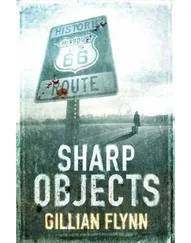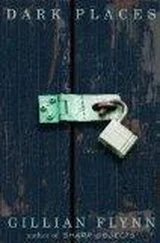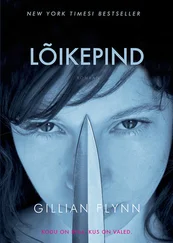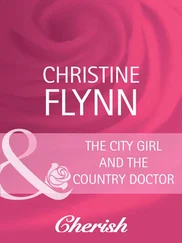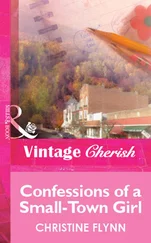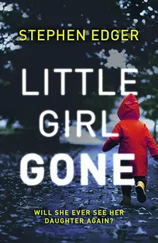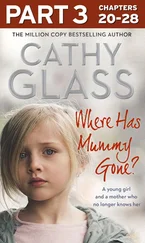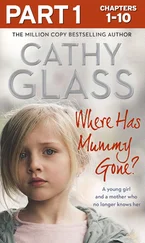And then you run into Nick Dunne on Seventh Avenue as you’re buying diced cantaloupe, and pow, you are known, you are recognized, the both of you. You both find the exact same things worth remembering. (Just one olive, though .) You have the same rhythm. Click. You just know each other. All of a sudden you see reading in bed and waffles on Sunday and laughing at nothing and his mouth on yours . And it’s so far beyond fine that you know you can never go back to fine. That fast. You think: Oh, here is the rest of my life. It’s finally arrived .
NICK DUNNE
THE DAY OF
I waited for the police first in the kitchen, but the acrid smell of the burnt teakettle was curling up in the back of my throat, underscoring my need to retch, so I drifted out on the front porch, sat on the top stair, and willed myself to be calm. I kept trying Amy’s cell, and it kept going to voice mail, that quick-clip cadence swearing she’d phone right back. Amy always phoned right back. It had been three hours, and I’d left five messages, and Amy had not phoned back.
I didn’t expect her to. I’d tell the police: Amy would never have left the house with the teakettle on. Or the door open. Or anything waiting to be ironed. The woman got shit done, and she was not one to abandon a project (say, her fixer-upper husband, for instance), even if she decided she didn’t like it. She’d made a grim figure on the Fiji beach during our two-week honeymoon, battling her way through a million mystical pages of The Wind-Up Bird Chronicle , casting pissy glances at me as I devoured thriller after thriller. Since our move back to Missouri, the loss of her job, her life had revolved (devolved?) around the completion of endless tiny, inconsequential projects. The dress would have been ironed.
And there was the living room, signs pointing to a struggle . I already knew Amy wasn’t phoning back. I wanted the next part to start.
It was the best time of day, the July sky cloudless, the slowly setting sun a spotlight on the east, turning everything golden and lush, a Flemish painting. The police rolled up. It felt casual, me sitting on the steps, an evening bird singing in the tree, these two cops getting out of their car at a leisurely pace, as if they were dropping by a neighborhood picnic. Kid cops, mid-twenties, confident and uninspired, accustomed to soothing worried parents of curfew-busting teens. A Hispanic girl, her hair in a long dark braid, and a black guy with a marine’s stance. Carthage had become a bit (a very tiny bit) less Caucasian while I was away, but it was still so severely segregated that the only people of color I saw in my daily routine tended to be occupational roamers: delivery men, medics, postal workers. Cops. (“This place is so white, it’s disturbing,” said Amy, who, back in the melting pot of Manhattan, counted a single African-American among her friends. I accused her of craving ethnic window dressing, minorities as backdrops. It did not go well.)
“Mr. Dunne? I’m Officer Velásquez,” said the woman, “and this is Officer Riordan. We understand you’re concerned about your wife?”
Riordan looked down the road, sucking on a piece of candy. I could see his eyes follow a darting bird out over the river. Then he snapped his gaze back toward me, his curled lips telling me he saw what everyone else did. I have a face you want to punch: I’m a working-class Irish kid trapped in the body of a total trust-fund douchebag. I smile a lot to make up for my face, but this only sometimes works. In college, I even wore glasses for a bit, fake spectacles with clear lenses that I thought would lend me an affable, unthreatening vibe. “You do realize that makes you even more of a dick?” Go reasoned. I threw them out and smiled harder.
I waved in the cops: “Come inside the house and see.”
The two climbed the steps, accompanied by the squeaking and shuffling noises of their belts and guns. I stood in the entry to the living room and pointed at the destruction.
“ Oh ,” said Officer Riordan, and gave a brisk crack of his knuckles. He suddenly looked less bored.
Riordan and Velásquez leaned forward in their seats at the dining room table as they asked me all the initial questions: who, where, how long. Their ears were literally pricked. A call had been made out of my hearing, and Riordan informed me that detectives were being dispatched. I had the grave pride of being taken seriously.
Riordan was asking me for the second time if I’d seen any strangers in the neighborhood lately, was reminding me for the third time about Carthage’s roving bands of homeless men, when the phone rang. I launched myself across the room and grabbed it.
A surly woman’s voice: “Mr. Dunne, this is Comfort Hill Assisted Living.” It was where Go and I boarded our Alzheimer’s-riddled father.
“I can’t talk right now, I’ll call you back,” I snapped, and hung up. I despised the women who staffed Comfort Hill: unsmiling, uncomforting. Underpaid, gruelingly underpaid, which was probably why they never smiled or comforted. I knew my anger toward them was misdirected—it absolutely infuriated me that my father lingered on while my mom was in the ground.
It was Go’s turn to send the check. I was pretty sure it was Go’s turn for July. And I’m sure she was positive it was mine. We’d done this before. Go said we must be mutually subliminally forgetting to mail those checks, that what we really wanted to forget was our dad.
I was telling Riordan about the strange man I’d seen in our neighbor’s vacated house when the doorbell rang. The doorbell rang. It sounded so normal, like I was expecting a pizza.
The two detectives entered with end-of-shift weariness. The man was rangy and thin, with a face that tapered severely into a dribble of a chin. The woman was surprisingly ugly—brazenly, beyond the scope of everyday ugly: tiny round eyes set tight as buttons, a long twist of a nose, skin spackled with tiny bumps, long lank hair the color of a dust bunny. I have an affinity for ugly women. I was raised by a trio of women who were hard on the eyes—my grandmother, my mom, her sister—and they were all smart and kind and funny and sturdy, good, good women. Amy was the first pretty girl I ever dated, really dated.
The ugly woman spoke first, an echo of Miss Officer Velásquez. “Mr. Dunne? I’m Detective Rhonda Boney. This is my partner, Detective Jim Gilpin. We understand there are some concerns about your wife.”
My stomach growled loud enough for us all to hear it, but we pretended we didn’t.
“We take a look around, sir?” Gilpin said. He had fleshy bags under his eyes and scraggly white whiskers in his mustache. His shirt wasn’t wrinkled, but he wore it like it was; he looked like he should stink of cigarettes and sour coffee, even though he didn’t. He smelled like Dial soap.
I led them a few short steps to the living room, pointed once again at the wreckage, where the two younger cops were kneeling carefully, as if waiting to be discovered doing something useful. Boney steered me toward a chair in the dining room, away from but in view of the signs of struggle .
Rhonda Boney walked me through the same basics I’d told Velásquez and Riordan, her attentive sparrow eyes on me. Gilpin squatted down on a knee, assessing the living room.
“Have you phoned friends or family, people your wife might be with?” Rhonda Boney asked.
“I … No. Not yet. I guess I was waiting for you all.”
“Ah.” She smiled. “Let me guess: baby of the family.”
“What?”
“You’re the baby.”
“I have a twin sister.” I sensed some internal judgment being made. “Why?” Amy’s favorite vase was lying on the floor, intact, bumped up against the wall. It was a wedding present, a Japanese masterwork that Amy put away each week when our housecleaner came because she was sure it would get smashed.
Читать дальше

